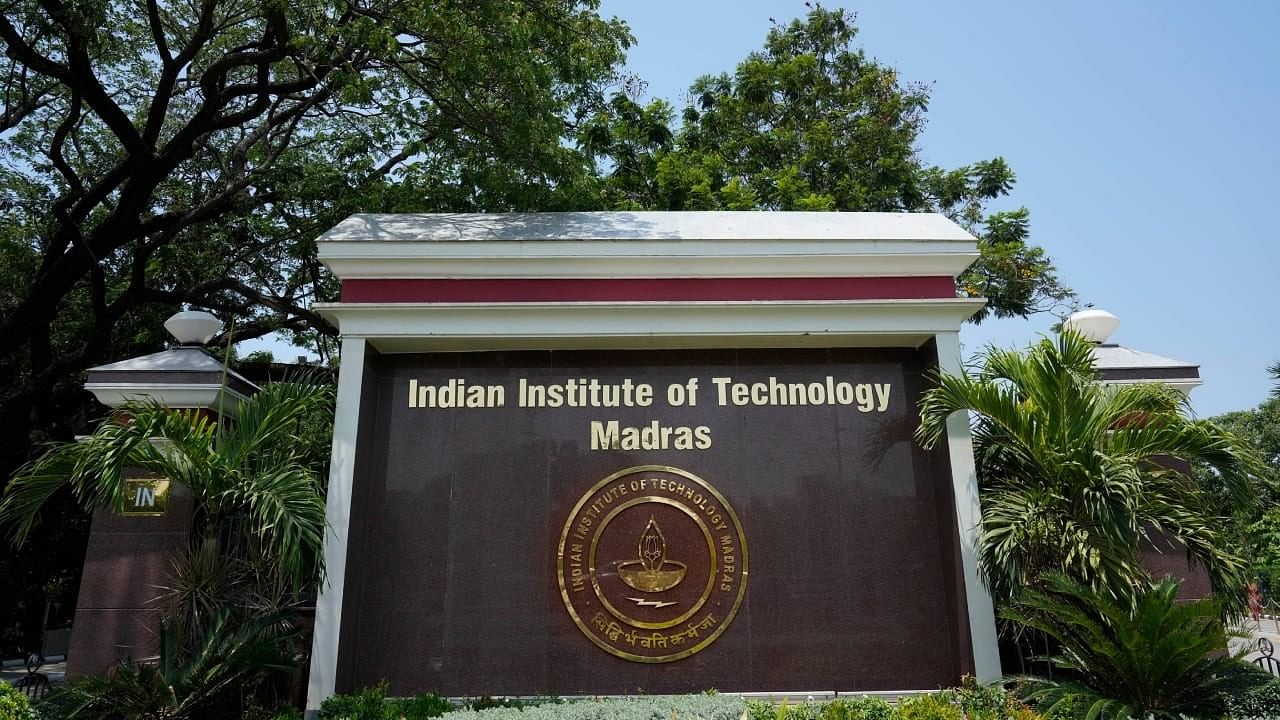
File photo of IIT-Madras.
Credit: PTI Photo
New Delhi: Researchers at Indian Institute of Technology (IIT), Madras, have patented the use of Indian spices to treat cancer and the medicines are likely to be available in the market by 2028, according to officials.
The Indian spice-derived nanomedicines have shown anti-cancer activity against lung, breast, colon, cervical, oral and thyroid cell lines but were safe in normal cells, they said.
The nanomedicines were also found to be safe in normal cells. The researchers are currently working on addressing the safety and cost issues which are major challenges in the existing cancer medicines.
Animal studies have been successfully concluded recently and clinical trials are being planned with a target of making the medicines available in the market by 2027-28.
"While the medical benefits of Indian spice oils have been known through the ages, their bioavailability has limited their application and use. Formulation as a nano-emulsion effectively overcomes this limitation. Stability of the nano-emulsion was a key consideration and it was optimised in our laboratory," R Nagarajan, a professor at the Department of Chemical Engineering in IIT-Madras, told PTI.
"While mechanistic studies to identify the active ingredients and their modes of interaction with cancer cells are important and will continue in our labs, parallelly, we will attempt to translate the positive results in our animal studies to clinical trials in an expedited manner. We are looking at a two to three-year window for bringing the formulations to market," he added.
Animal studies have been carried out on the patented anti-cancer nano-formulations.
Animal validation to adjust the dosage (GLP phase) and efficacy studies (non-GLP phase) have been carried out through funding support from IIT Madras Distinguished Alumnus Awardee and Infosys Co-Founder Gopalakrishnan through Pratiksha Trust.
Nagarajan said there are several advantages of nano-oncology over conventional cancer treatment therapy. "The benefits include no toxic side-effects, reduced cost of treatment, abundance of Indian spice oils and leveraging of nano-scale for optimising effectiveness and bio-availability," he said.
M Joyce Nirmala, Chief Scientific Officer (Cancer Nanomedicine and Drug Design Laboratory), IIT Madras, said the patented Indian spice-based nano-formulations have proven effective in many common types of cancers through in-vitro studies.
"The drug dosage adjustment and efficacy are now under investigation through animal models. This will be followed by clinical trials. This cancer nanomedicine is being developed to reduce the cost and pain of cancer treatment and also to overcome the toxic side effects seen in the existing cancer treatments."
India is the world’s largest spice producer. Hence, large-scale production could be achieved at a low cost with our Indian spice-based cancer nanomedicine.
"Moreover, the formulations are developed for an oral route of administration to ease the treatment process. The spices chosen are edible, hence, biocompatibility is good, reducing toxic side effects.
"Also, plant and spice oils, in general, could influence multiple oncogenic signalling pathways, which have an added advantage in improving the quality of life of cancer patients," Nirmala said.
The IIT Madras officials said in the last two decades, nano-oncology has shown promise as an emerging strategy in cancer therapy, diagnosis and prevention, demonstrating positive outcomes in research and clinical trials.
"Cancer nanomedicine is considered superior to conventional treatment strategies owing to its reduced toxicity, improved drug accumulation, suitable size spectrum in the nanometre range and increased circulation time. Of late, there has been an increase in the number of nano-based formulations under clinical trials, with many undergoing Phase II and Phase III clinical trials.
"The reason behind nanotechnology-based cancer drug development is the global surge in cancer cases as well as cancer deaths in all age groups. Of these, breast, lung and colorectal cancers are considered the most common worldwide. A major concern is that according to the World Health Organisation in 2020 around 4,00,000 children develop cancer annually," Nirmala said.
Chemotherapy has been in use as a treatment strategy since 1930 with other common treatment options being radiotherapy and surgery. However, conventional treatment options are often associated with pain, toxic side effects, lack of targeting efficiency and high cost.
"As the complete eradication of cancer remains elusive through the existing therapies, the role of nanomedicine is assuming greater importance," Nirmala added.